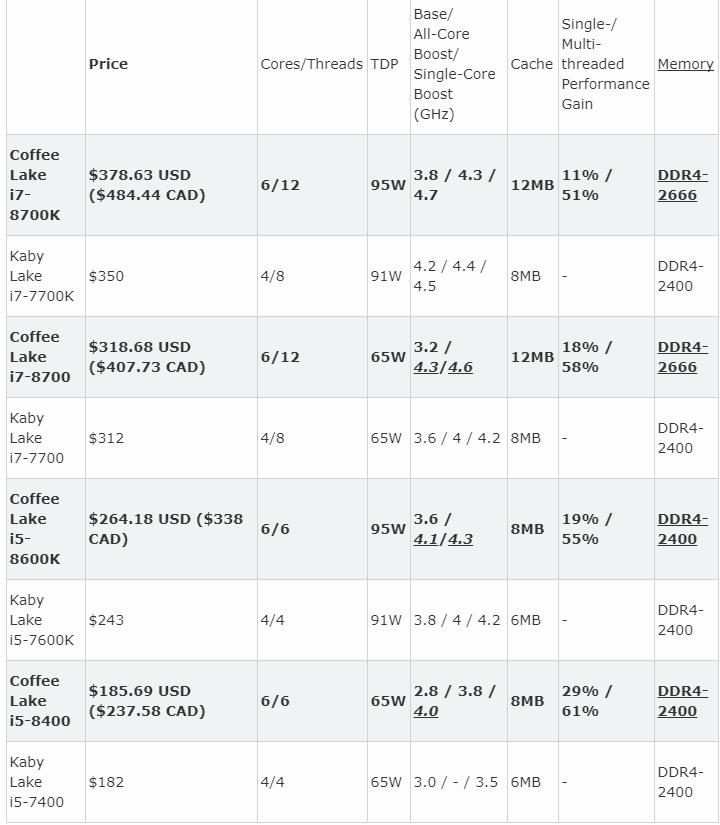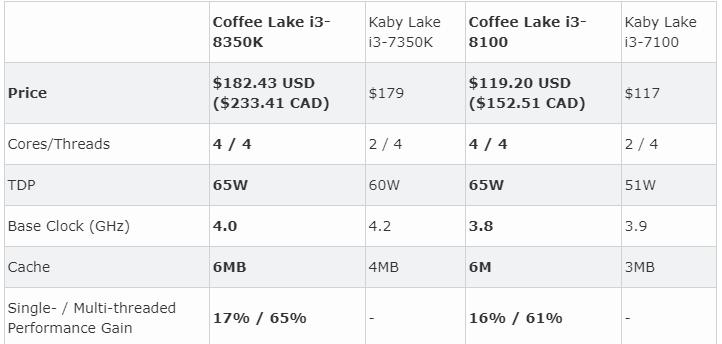Came to say 11% increase on single-threaded performance on the i7-8700K compared to the i7-7700K isn't going to happen, but it actually looks feasible if we assume linear scaling across the board.
The i7-8700K will turbo 4.44% higher than the i7-7700K, and its IMC can officially run RAM at an 11.08% higher clock speed. If we assume RAM bottlenecks performance enough to scale linearly, then theoretically single-thread performance on the i7-8700K could outperform the i7-7700K by around 16%. The increased L3 cache should affect performance insignificantly but measurably, given that the additional 2 MB L3 on the i7-7700K does little to benefit single-thread performance over the i5-7600K.
So, that leaves us with an idealized case of ~16% gain in single-thread performance in bandwidth intensive loads, but only a 4.44% increase in performance when not bandwidth-limited. None of this requires an IPC increase in any capacity, so unless the i7-8700K can overclock further than the i7-7700K, they're going to cap out at around the same single-thread performance.







